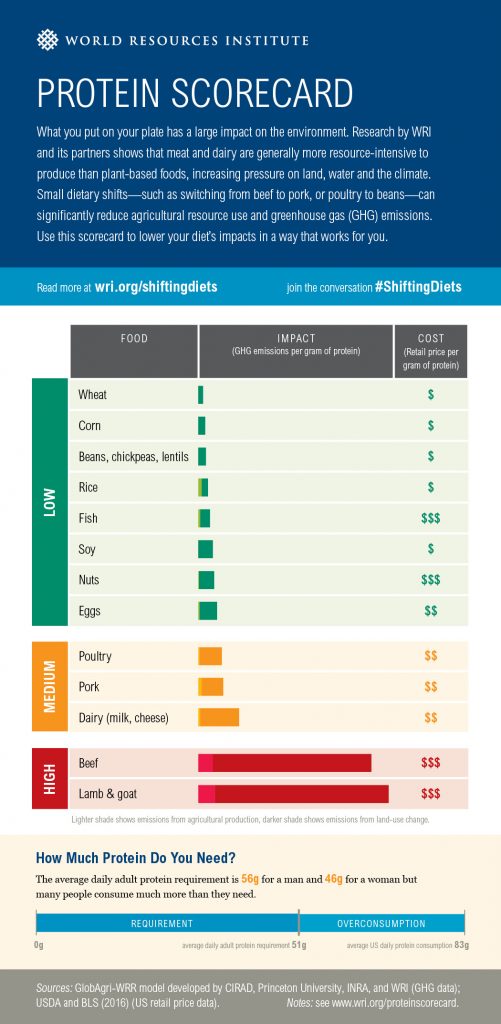What you put on your plate has a large impact on the environment. Research by the World Resources Institute (WRI) and its partners shows that meat and dairy are generally more resource-intensive to produce than plant-based foods, increasing pressure on land, water, and the climate. But, not everyone is ready to give up meat altogether. So, the scorecard shows how you can make small dietary shifts – such as switching from beef to pork, or poultry to beans – that can significantly reduce agricultural resource use and greenhouse gas (GHG) emissions.

Not only can we make some dietary shifts, but we should also look at the amount of protein we need and consume. The average daily adult protein requirement is 56g for a man and 49g for a woman. Currently, the average US daily protein consumption is 83g.
Find out more at
https://www.wri.org/resources/data-visualizations/protein-scorecard
 Food
Food Farmers
Farmers Sustainable Living
Sustainable Living Living Planet
Living Planet News
News